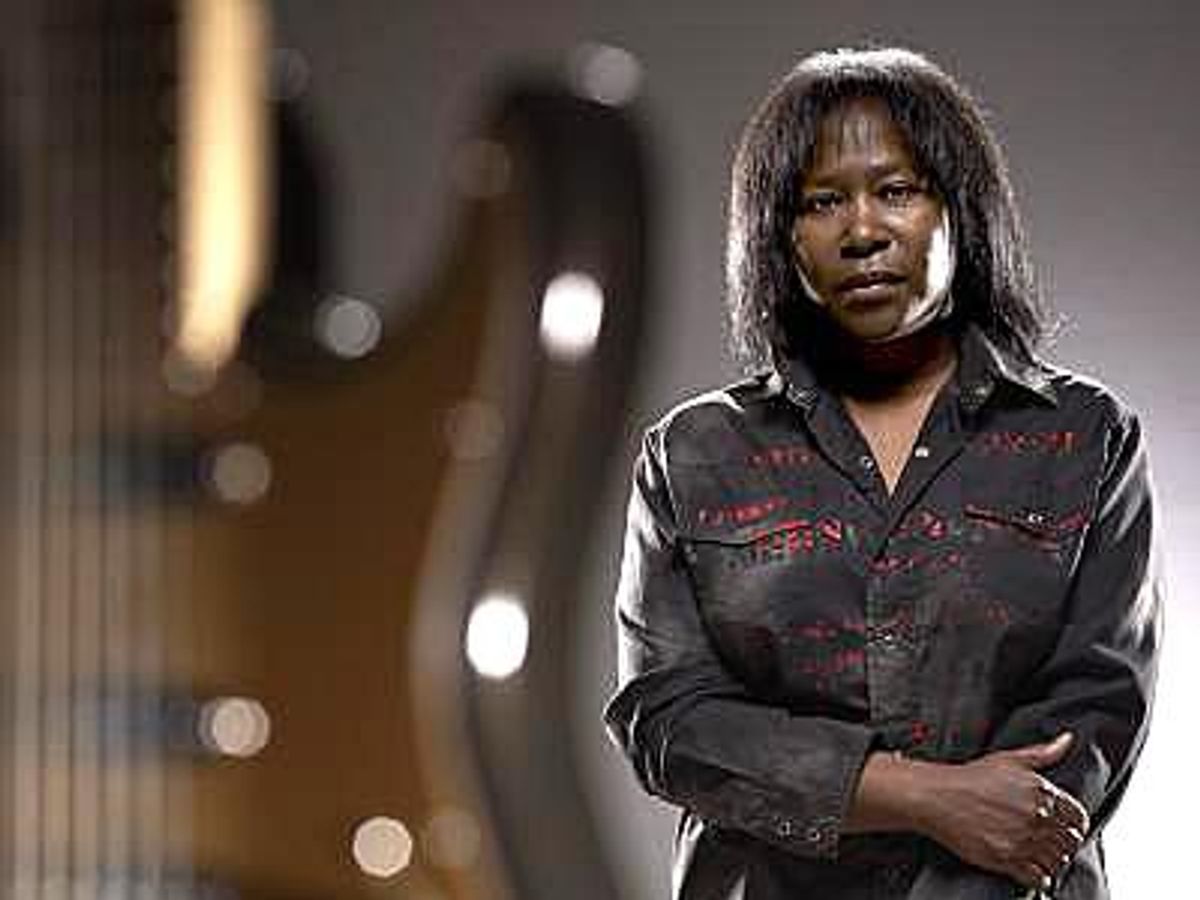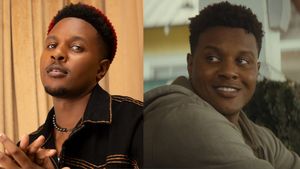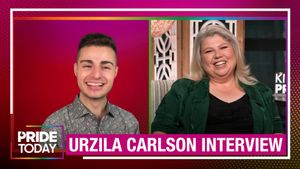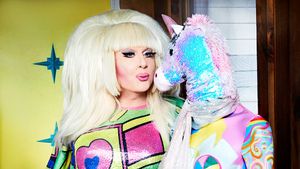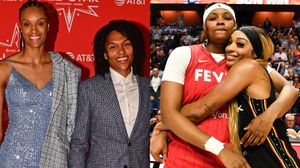Joan Armatrading, now 62, was a beacon on the music scene in the early 1970s, with one album in the can Whatever's For Us, and a single, "Lonely Lady," that had been left off the album but became a smash hit on the radio. The usual record label drama ensued and in 1976 she released her third album, Joan Armatrading, which hit the Billboard Top 20 and spawned the hit song, "Love and Affection." The song was so popular then -- and continues to be now -- that it's been performed or recorded by a number of artists from Sheena Easton and Martha Davis of The Motels in the 1980s to Courtney Pine, Kele Le Roc, and Mr. Pink presents The Program in the 2000s. Most telling though, was a cover that the lesbian band Two Nice Girls did (mixing the song with Velvet Underground's "Sweet Jane") and a riveting live performance that Melissa Etheridge, Joan Osborne, Paula Cole, and Jewel did on VH1 in 1996.
Lesbians, it seems, have always gotten Armatrading's music, the songs about love and redemtion, about female friendship and romance, all in a gender neutral context; her lyrics "read"as lesbian, the same way the music of Melissa Etheridge did, long before either woman was out. When Armatrading appeared on Saturday Night Live in 1997, the collective gaydars pinged, but Armatrading -- who was born in Saint Kitts (dad's from the Caribbean island, mom's from Antigua) and raised largely in the slums of England -- rarely spoke of her personal life, never uttering the word lesbian, and until the last decade, keeping her personal life under wraps.
The artist, who has new album hitting stores today --Starlight (429 Records), which shows off her enduring prowess as a singer and musician -- married her partner, artist Maggie Butler, in the Scottish Shetland islands two years ago, and made no attempt to hide the engagement. Being a lesbian doesn't seem to be an issue for Armatrading. Don't mistake that for Armatrading opening up, however; the three time Grammy nominated British musican who made VH1's 100 Most Influential Women in Rock, has always let her music speak for itself. Thankfully, Starlight does just that: using jazz-inflected arrangements and lyrical moodiness to explore love and human relationships to brilliant effect. We let Armatrading avoid our personal questions but did get her to talk about her 40-year career, the new album, and singing for LGBT rights (on the True Color Tour) and for the man himself, Nelson Mandela.
The Advocate: Let me ask about a couple of songs on the new album. I love "Always on My Mind." Tell me about the inspiration for that song?
Joan Armatrading: I have always written about people's relationships with each other. We are here to communicate with one another and we are all looking for love or meaningful friendships. I write from observation and I like people watching and seeing how people interact. "Always On My Mind" is a love song looking at very close relationships.
The songs on the album really seem to explore love, relationships, and sometimes the absence of them. Do you feel like this album is meant to be heard in it's entirety to really be understood?
It would be great to have people listen to Starlight from start to finish but I think the reality is even in the days of vinyl albums people jumped from track to track. As long as people get to know the songs on this CD I don't really mind which order they fall in love with them.
A song like "Back on Track" seems almost '70s inspired. But it's really a grown-up's song. Do you think your lyrics have matured since your early days of songwriting and performing?
My first album was released in 1972; I was 22. Starlight is released in 2013; I'm now 62.
You've had a long impressive career, with Top 10 albums and No. 1 spot on Billboard, but you've haven't gotten the magazine covers and the tributes in the U.S. that some of your peers have. Do you think you have gotten the acclaim you deserve?
I would love to be more well known in America.
You performed for Nelson Mandela on his 70th birthday. What was that experience like?
I did perform for Nelson Mandela on his 70th birthday and that was a great day. I have to say, though, what was even more special for me was performing to him in 2001 a tribute song I wrote about him, called "The Messenger," at a private event in London. Mr. Mandela was on stage with me and he was up dancing to the whole song.
Who would you still like to perform for?
I love performing to anyone who appreciates my music. I'm very lucky that I have been able to perform my music to millions of people over the years.
You left school at the age of 15 to support your family. Do ever regret not having a more traditional childhood?
I had a great childhood and the only thing that was missing was being able to go to university to get a degree. I made up for that when I got my [honorary bachelor's] degree in history in 2001.
In the 1980s you had a reputation as an "album artist." Is there such a thing anymore?
I have no idea, but I do know that all artists still put lots of songs together on CD, or lots of songs together for people to download all at once or individually, as they choose. It's really all about writing songs for people to connect with.
Your 2007 album Into the Blues debuted at No. 1 on the U.S. Billboard Blues Chart, which made you the first U.K. female artist to earn that distinction.
I love how people connected with Into The Blues and I love it that people are still discovering my music.
I know that album was also nominated for a Grammy Award, also making you the first female U.K. artist to be nominated in the Grammy Blues category.
I was really pleased and surprised to find that I was the first female.
You joined Cyndi Lauper on the True Colors Tour. What was your favorite part of that tour?
I just love doing live shows and I've played my own sell out gigs at Red Rocks so it was nice to play there again
Your lyrics have always included gender neutral language -- one of the reasons why lesbians have always been drawn to your music --but you once said your "songs aren't about me at all. If the songs were about me I'd be so embarrassed." Do you still feel that way?
Starlight is my twentieth CD. Can you imagine if every song on all of those CDs was about me, how self-centered would that make me? My writing style is to write in the first person and I do that no matter what or who the inspiration is. I suppose that's why people think all my songs are about me. The thing to know is that the songs are usually from something that I've observed, read, or experienced. The kinds of songs that are obviously about me tend to be songs like "Blessed," "I'm Lucky," "Me Myself I." I also tend to put myself in parts of songs. For instance, I'm a very positive person and I believe friendships are important so that gets reflected in lyrics.
